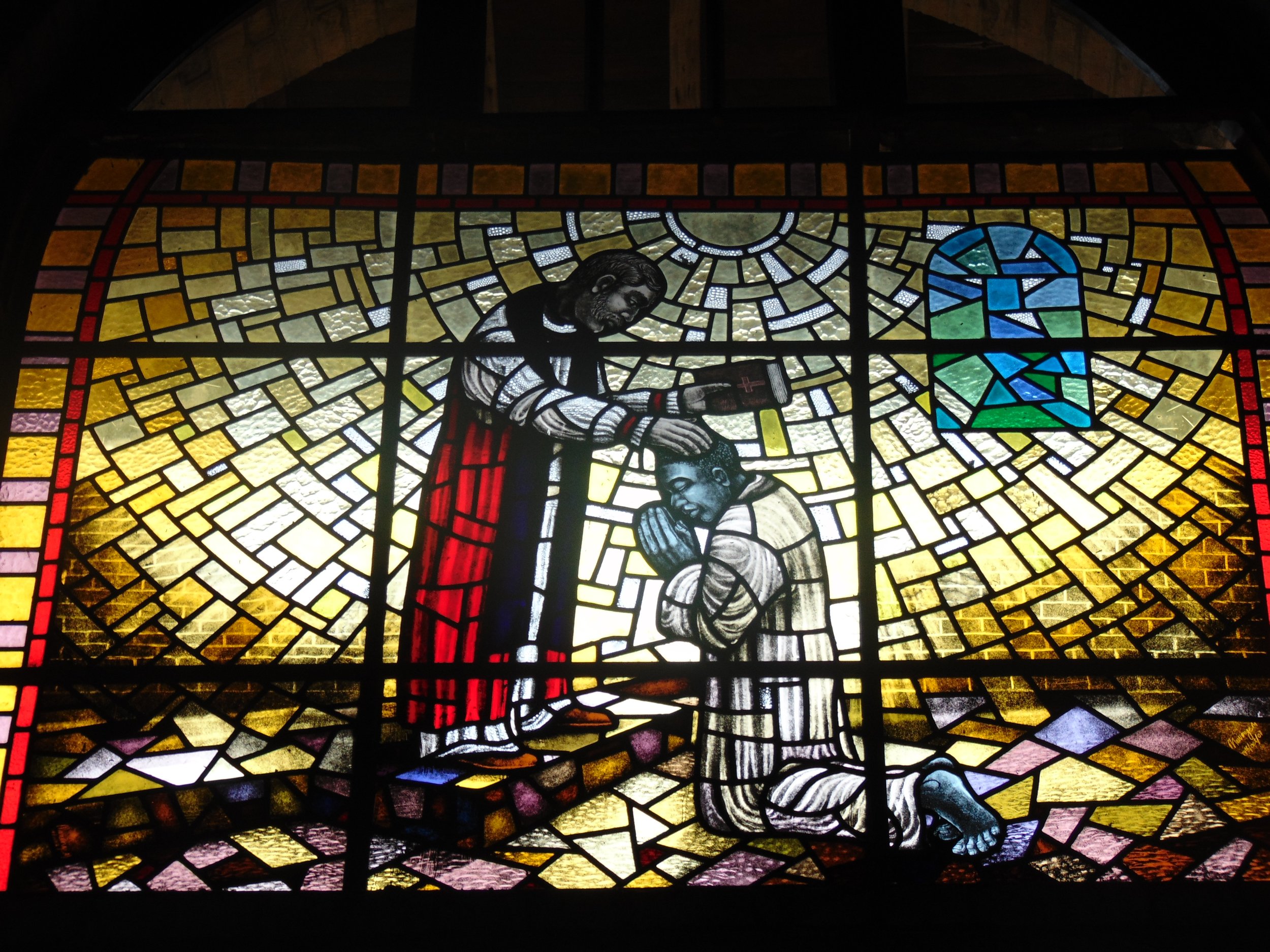Ugandan Reader’s Guide to Michael Schutt’s “Redeeming Law” by Brian Dennison and Patricia Johnson
This Reader's Guide is created with the Ugandan law student in mind. The Guide to help Ugandan readers improved their experience of reading Redeeming Law by: 1) helping them navigate your way through possible cultural disconnects; 2) providing them with material that supplements that the text with content relevant to the Ugandan context; and 3) providing them with journaling topics that will enable to engage with the material in a meaningful way.
This is a reader's guide for Ugandans that is intended to contextualize Michael Schutt's "Redeeming Law."
"Redeeming Law" was written with American law students and American lawyers in mind. The book was not written for aspiring advocates in Uganda. Nonetheless, "Redeeming" Law has value that cuts across legal cultures. The book addresses the challenges faced by Christians who enter the legal profession. It discusses relevant matters such as calling, community and integrity from a Christian perspective. Most importantly it provides guidance, inspiration and perspective for people who strive to be genuine Christian lawyers. The author’s core content is just as relevant in the Uganda setting as it is in the United States.
This Reader's Guide is created with the Ugandan law student in mind. The Guide to help Ugandan readers improved their experience of reading Redeeming Law by: 1) helping them navigate your way through possible cultural disconnects; 2) providing them with material that supplements that the text with content relevant to the Ugandan context; and 3) providing them with journaling topics that will enable to engage with the material in a meaningful way.
This Reading Guide is an "open source." It can be used by others who would also like to access ideas and a proposed format for contextualizing Redeeming Law into other legal environments.
“Integrating Justice Through Course Design: A Report from Uganda Christian University Faculty of Law” by Brian Dennison
Integrating aspects of justice into curriculum is a welcome and necessary challenge for Christian course designers. This is especially true in the case of legal education in the developing world. The Faculty of Law at Uganda Christian University incorporates Biblical justice principles into its courses in various ways ranging from the practical to the theoretical.
This paper surveys justice education strategies and techniques employed within four course subjects offered to law students at Uganda Christian University: (1) “Introduction to the Bible for Lawyers” introduces the students to God’s heart for justice, presents a wide variety of justice issues from a Biblical context, and begins the justice conversation in the classroom though the use of simple and thought-provoking vignettes; (2) The “Jurisprudence” provides students with wide philosophical perspectives on the nature of justice that are assessed through a Christian lens; (3) “Law and Christian Political Thought in Africa” offers students an opportunity to test and apply theoretical approaches to justice to their present political environment through reading, writing, presenting and class discussion; (4) “Clinical Legal Education” allows students to act on justice principles through community outreach and clinical legal work dedicated to justice-based causes.
Integrating aspects of justice into curriculum is a welcome and necessary challenge for Christian course designers. This is especially true in the case of legal education in the developing world. The Faculty of Law at Uganda Christian University incorporates Biblical justice principles into its courses in various ways ranging from the practical to the theoretical.
This paper is a survey of the justice education strategies and techniques employed within four course subjects offered to law students at Uganda Christian University: (1) “Introduction to the Bible for Lawyers” introduces the students to God’s heart for justice, presents a wide variety of justice issues from a Biblical context, and begins the justice conversation in the classroom though the use of simple and thought-provoking vignettes; (2) The “Jurisprudence” provides students with wide philosophical perspectives on the nature of justice that are assessed through a Christian lens; (3) “Law and Christian Political Thought in Africa” offers students an opportunity to test and apply theoretical approaches to justice to their present political environment through reading, writing, presenting and class discussion; (4) “Clinical Legal Education” allows students to act on justice principles through community outreach and clinical legal work dedicated to justice-based causes.
Dennison, David, Integrating Justice Through Course Design: A Report from Uganda Christian University Faculty of Law (April 21, 2011). CCCU-IJM Student Learning & Global Justice Conference 2011, Available at SSRN: https://ssrn.com/abstract=2441866
Legal Ethics and Professionalism in Uganda, Brian Dennison and Pamela Tibihikirra-Kalyegira (editors)
Legal ethics and professionalism are at thecore of legal practice. Advocates must know the requirements of the profession. In addition, being an ethical and professional advocate is about more than following rules. The ethical path a lawyer chooses defines their career and identity. This book is written with both the law student and the legal practitioner in mind. It offers a series of topical chapters addressing matters essential to professional advocacy.
Topics range from the advocate-client relationship to judicial ethics. The contributing authors come from all walks of egal life. From professors to judges, from private practitioners to prosecutors, the perspectives of the authors cut across a wide range of experiences. These authors do more than state the law. The authors raise cutting edge issues and look forward to future challenges. The end result is an invaluable resource to present and future members of the Ugandan Bar.
Legal ethics and professionalism are at the core of legal practice. Advocates must know the requirements of the profession. In addition, being an ethical and professional advocate is about more than following rules. The ethical path a lawyer chooses defines their career and identity. This book is written with both the law student and the legal practitioner in mind. It offers a series of topical chapters addressing matters essential to professional advocacy. Topics range from the advocate-client relationship to judicial ethics. The contributing authors come from all walks of egal life. From professors to judges, from private practitioners to prosecutors, the perspectives of the authors cut across a wide range of experiences. These authors do more than state the law. The authors raise cutting edge issues and look forward to future challenges. The end result is an invaluable resource to present and future members of the Ugandan Bar.
This book includes examples of integration of Christian beliefs, ethics and practices into the subject of legal ethics and professionalism.



